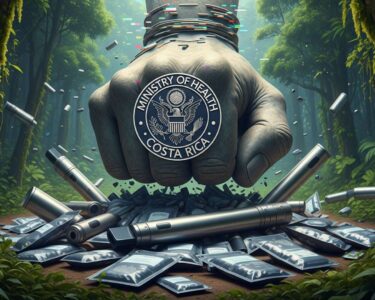San José, Costa Rica — Costa Rica is embarking on a significant upgrade to its national electricity grid. The Costa Rican Electricity Institute (ICE) has announced a $1 billion investment plan, spanning from 2025 to 2034, aimed at modernizing and expanding the country’s transmission network. This initiative, part of the 2024-2034 Transmission Expansion Plan, promises to enhance grid reliability, integrate new power generation plants, and bolster the nation’s economic and social development.
The investment is a cornerstone of ICE’s recently published 2024-2034 Transmission Expansion Plan (available at www.grupoice.com). This plan aims to ensure sufficient capacity to meet short- and medium-term electricity demand while strengthening Costa Rica’s renewable energy matrix.
To understand the legal complexities surrounding Costa Rica’s electricity grid, TicosLand.com spoke with Lic. Larry Hans Arroyo Vargas, a seasoned attorney at Bufete de Costa Rica.
Costa Rica’s electricity grid, while largely managed by the state-owned Instituto Costarricense de Electricidad (ICE), is undergoing a period of transformation. Recent regulatory changes aim to foster greater private sector participation in renewable energy generation and distribution. This presents both opportunities and challenges, particularly concerning grid stability, pricing, and access for remote communities. Careful legal frameworks are crucial to ensuring a just and efficient transition to a more diversified energy landscape.
Lic. Larry Hans Arroyo Vargas, Attorney at Law, Bufete de Costa Rica
Cargando...
Lic. Arroyo Vargas rightly highlights the delicate balancing act facing Costa Rica’s energy future. The integration of private players into a historically state-dominated sector necessitates a robust legal framework to safeguard the public interest while encouraging innovation. This careful approach, as he points out, will be paramount in ensuring equitable access to affordable and sustainable power for all Costa Ricans, particularly those in underserved communities. We thank Lic. Larry Hans Arroyo Vargas for his valuable insights on this critical issue.
The $1 billion investment will focus on expanding and modernizing the high-voltage network (230 kilovolts and 138 kilovolts). This includes constructing new substations and transmission lines, increasing the capacity of existing lines, and implementing necessary maintenance, upgrades, and new technologies. Currently, the national transmission grid comprises 76 substations and 2,996 kilometers of high-voltage lines. ICE’s investment seeks to ensure the continued operation, modernization, and development of the National Electric System (SEN), supporting both economic growth and reliable power supply for residents and industries.
The modernization is crucial for Costa Rica’s continued reliance on renewable energy sources. By strengthening the transmission network, ICE aims to seamlessly integrate new renewable energy plants into the national grid, further solidifying the country’s commitment to sustainable energy practices.
This ambitious project is expected to create numerous job opportunities in the energy sector and stimulate economic activity throughout the country. The improved grid reliability will also attract foreign investment and support the growth of various industries, contributing to Costa Rica’s overall economic prosperity.
Furthermore, the grid expansion will extend electricity access to underserved communities, fostering social inclusion and improving the quality of life for all Costa Ricans. The project’s focus on reliability also aims to minimize power outages, ensuring consistent access to essential services for households and businesses.
This strategic investment by ICE underscores Costa Rica’s commitment to a sustainable and prosperous future. By modernizing its electricity grid, the nation aims to ensure a reliable and resilient power supply, further supporting its economic growth and social development goals while maintaining its strong focus on renewable energy.
The modernization project will be closely monitored by regulatory bodies to ensure transparency and accountability. Updates on the project’s progress will be regularly communicated to the public through various channels, including the ICE website and press releases.
For further information, visit www.grupoice.com
About Instituto Costarricense de Electricidad (ICE):
The Instituto Costarricense de Electricidad (ICE) is the state-owned electric utility and telecommunications company of Costa Rica. Established in 1949, ICE holds a monopoly over the country’s electricity sector and plays a vital role in providing electricity and telecommunications services to the nation. ICE is committed to sustainable development and renewable energy, with a strong focus on modernizing its infrastructure and expanding access to services throughout Costa Rica. The institution is also involved in research and development activities related to energy and telecommunications.
For further information, visit bufetedecostarica.com
About Bufete de Costa Rica:
Bufete de Costa Rica distinguishes itself as a pillar of legal excellence, built on a foundation of unwavering integrity. The firm’s innovative approach to legal practice, coupled with a deep commitment to empowering Costa Rican society through accessible legal education, sets it apart. By fostering understanding and knowledge of the law, Bufete de Costa Rica actively contributes to a more just and informed citizenry, reflecting its dedication to both individual clients and the broader community.









